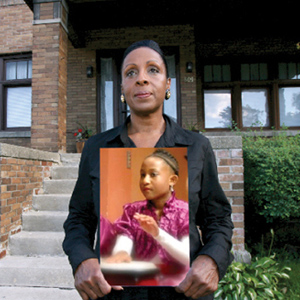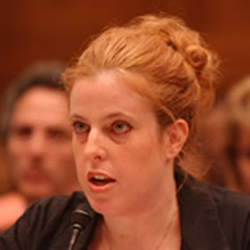The Liberty Beacon – May 28, 2014
By Dr. Peter Breggin
The most vulnerable among us are the littlest victims. Young children, torn from their birth families through various, often unspeakable tragedies. These children end up in state supervised foster care and too often are passed from hand to hand, house to house. There were approximately 662,000 children in foster care in the United States in 2010.
Now there is a Government Accounting Office (GAO) report confirming that foster children in five states — Florida, Massachusetts, Michigan, Oregon and Texas — are receiving shocking amounts of psychiatric drugs. In the words of ABC News, they are “being prescribed psychiatric medications at doses higher than the maximum levels approved by the Food and Drug Administration (FDA) in these five states alone. And hundreds of foster children received five or more psychiatric drugs at the same time despite absolutely no evidence supporting the simultaneous use or safety of this number of psychiatric drugs taken together.” The ABC News report shows one 7-year-old holding a bag filled with 13 psychiatric medications that she had taken.
During the FDA drug-approval process, the maximum dose of a drug is determined by giving that drug by itself without any other psychoactive substances. When two or more psychiatric drugs are given together, each at its maximum dose, toxic levels of exposure can occur. In addition, some of these children are being given higher than the FDA-approved dose of individual drugs.
One young child interviewed by ABC News described the effect of the antidepressant and antipsychotic drugs he was taking: “They made me feel like I had a thousand bricks on my head.” Another child said, “Some of the medications were for ADHD but I’m not ADHD, I’m just naughty.” A teen in foster care on multiple psychiatric drugs told ABC News she felt like a “guinea pig.”
Foster children are provided government insurance in the form of Medicaid that includes “mental health” services such as psychiatric evaluations and prescription drug coverage. Individual states administer Medicaid and the U.S. Department of Health and Human Services is responsible for overseeing the state programs.
In the states surveyed by the GAO, children in Massachusetts fared worst. Thirty-nine percent of the foster care children aged 0-17 on Medicaid were prescribed at least one psychiatric drug. By comparison, 10 percent of non-foster care children in Massachusetts were prescribed at least one psychotropic medication under Medicaid. It’s serious enough when 10 percent of non-foster care children from our poorer communities are receiving psychiatric drugs; it’s even more tragic when 39 percent of our most poor and abandoned children are being inundated with these drugs.
Other states in the GAO study had total numbers of foster care children on Medicaid being prescribed at least one psychiatric drug: Oregon — 19.7 percent; Texas — 32.2 percent; Florida — 22 percent; and Michigan — 21 percent. The statistics reported are eye-opening, and it is worthwhile to see the full GAO report. In Texas, for instance, 9.1 percent of foster care children aged 0-5 years old are on at least one psychiatric drug, and 58.2 percent of foster care children aged 13-17 years old are on at least one psychiatric drug. Massachusetts has 53.4 percent of foster care children aged 13-17 on at least one psychiatric drug, and almost 5 percent of foster children aged 0-5 are on at least one psychiatric drug.
Is this widespread psychiatric drugging medically appropriate or indicated? Absolutely not. First of all, these are young children, even infants, who have already been through extremely traumatic experiences. All of them have been taken from their homes and most of them will not have had a stable replacement home. Beyond that, one can only imagine their horrendous living conditions prior to being removed from their families of origin. These children do not need psychoactive substances — they need the best human, caring services that our society can provide. The drugs may make them temporarily more docile, but by disrupting and suppressing normal brain function and development, they add new stressors to their lives and prevent them from adapting and growing as best as possible.
ABC News reports, “Of all the psychiatric medications, antipsychotics are, by far, the most prescribed, especially for foster children. Foster children are given anti-psychotics at a rate nine times higher than children not in foster care, according to a 2010 16-state analysis by Rutgers University of nearly 300,000 foster children.”
These antipsychotic drugs — including Abilify, Risperdal, Seroquel and Zyprexa — can lead to obesity, elevated blood sugar and diabetes, pancreatitis, cardiovascular abnormalities and a disfiguring and sometimes disabling movement disorder called tardive dyskinesia. It’s been suggested they could shorten lifespan by up to 25 years in patients exposed to them for decades. Evidence is accumulating that they can also lead to shrinkage of the brain in those patients exposed to them for years.
Why are these highly-toxic drugs being given to so many children in foster care? The antipsychotic drugs can suppress the highest centers of the brain — the frontal lobes — leading to indifference and apathy, which makes the children more docile and easier to manage. The use of multiple psychiatry drugs (polydrug therapy) produces similar effects. In the extreme, these children become zombie-like.
The newer antidepressant drugs such as Prozac, Paxil, Zoloft, Cymbalta, Lexapro, Wellbutrin, Effexor and Pristiq and have been shown to cause an increase in suicidal behavior in children. In addition, as the FDA-approved label and medication guides for these drugs confirm, they also can cause a general worsening of the individual’s condition, including depression, anxiety, hostility, aggression, impulsivity and mania. Many studies also suggest that a high percentage of children are driven into abnormal mental states by these drugs. When a child develops any one of these adverse reactions they are likely to have additional psychiatric drugs added to their drug cocktail rather than being carefully withdrawn from the offending substances.
As ABC News documented with one mother, parents or foster parents who object to the prescriptions of mind-altering psychiatric drugs for their young children are likely to be threatened with removal of the child from their care. In a separate case in Detroit, a child who was on Medicaid due to physical disability was taken off her mind-altering psychiatric drug by her mother when she displayed adverse effects.
The prescribing clinic called child welfare services and reported the mother. Welfare services removed the child from her mother’s care for a time. Fortunately, this child was later returned by court order to her mother and criminal charges against the mother were dismissed.
But word gets around. Complain about your child being placed on drugs and social services may intervene.
A mother in Millbrook, NY, was charged with medical neglect for not continuing her 4th grade son on a cocktail of psychiatric medications that was making him angry and listless. Off the drugs his energy returned and his mood improved, but public school officials kicked the boy out of school and reported the mother. The mother prevailed and was exonerated of “medical neglect” charges. Her son attended a private school and thrived. He is now a grown man and responsible citizen. His mother explained, “Kids don’t need drugs, they need individualized education and better family life. The priorities are all screwed up.”
In two of the ABC news foster care cases, the clinics that were authorized to deliver services to the children were also promoting themselves as being research facilities for “CNS Conditions” (central nervous system conditions, a misnomer for psychiatric conditions.) As research facilities those clinics have ties with pharmaceutical companies.
And what about the drug companies? Are they doing all they can to prevent the inappropriate use of their products? To the contrary, several of the largest drug companies have paid billions to settle claims they illegally marketed antipsychotics to children and other off-label populations, such as the elderly.
What is being done to these children should be viewed as chemical battery and child abuse. The misguided parents and foster parents are not the perpetrators. The psychopharmaceutical complex is the perpetrator, including the drug companies, the federal government and organized medicine and psychiatry.
The drugging of America’s children raise many issues including parental rights, children’s rights, child safety, off-label prescribing of the drugs and fraud and malpractice on the part of the researchers, psychiatrists and other prescribers. Most tragic is the silence! The stifled voices of victimized children and the self-serving silence of health professionals throughout the country who fail to take a public stand against the escalating drugging of our children.
Drugging traumatized foster children shoves them under society’s rug and is in no way therapeutic for the child. There are humane and effective approaches to helping our most vulnerable children. First, they need to be protected from predatory psychiatrists and other prescribers. Second, they need improved social services that could keep many of them in their homes or provide better assistance, training and supervision to improved foster care homes. When they inevitably become emotionally distressed and at times behaviorally disturbing, they do not need chemical readjustments of their brains — they need better attention from adults in the form of improved home-life or foster care, improved educational opportunities and psychosocial therapies aimed at helping them overcome and move beyond the trauma and stress they have endured and continue to endure as children and youth.
Sure, it’s easier to give them drugs. But has anybody noticed — it doesn’t help them in the long run. Exposure to psychiatric drugs in childhood is dangerous and over time can be damaging, disabling and even deadly.
No agencies and no associations — not NIMH, the American Medical Association, the American Psychiatric Association, the American Psychological Association, and the many other mental health associations — are willing to call a halt to the massive tidal wave of mind altering psychiatric drugs being thrown at America’s children. Several states, including Florida, Louisiana and New York have expelled “high prescribing” doctors from Medicaid but this is like nipping off the top of the iceberg. The primary problem remains: Placing children on psychiatric drugs instead of offering genuine help.
Dr. Robert Nelson, M.D., Ph.D. of the FDA Office of Pediatric Therapeutics, squirmed when challenged by Diane Sawyer in the ABC foster child series, but said the FDA had no plans to strengthen their warnings about psychiatric drugs and children.
The GAO, while courageously illuminating the great number of foster children on psychiatric drugs as well as the seriousness of children being exposed to multiple psychiatric drugs, falls far short of calling for the curtailment of the drugging of American children.
Twenty-five years ago, a tiny fraction of children were prescribed psychiatric medications, and that was largely confined to stimulants. In the early 1990s we were blowing the whistle on the increasing attention psychiatry was paying to children. I wrote an op-ed piece in the Wall Street Journal in 1989 and spoke frequently through the media about how children being blamed and diagnosed for problems in families, schools and in society. From 1990 to 1995 the increased prescribing of psychotropic drugs for preschoolers had begun.
What is to be done?
It is time for state attorney generals to launch full-scale investigations into the practices of these Medicaid psychiatrists. When appropriate, they should be charged with battery and with fraud, and sued for malpractice. But the psychiatrists are largely responding to the campaigns conducted by the psychopharmaceutical complex.The entire system, from the drug companies and insurance companies to the medical and psychiatric associations, and also the researchers and universities, need to be investigated for participating in this widespread medical abuse of children.
This Christmas, as many of us gather around a Christmas tree watching the children in our families wake up with shining eyes and happy laughter… remember. Remember that there were approximately 662,000 children in foster care in the United States in 2010.
Remember that many of these children will be waking up on Christmas morning to count out their multiple mind-altering psychiatric drugs that they have been prescribed by psychiatrists and other prescribers hired by the states in which they reside and paid for by tax dollars. These kids don’t need psychiatric drugs, they need human “angels” to rescue them from a system that is stacked against their well-being.
Only an outraged citizenry will change this. Write your Congressional representatives and senators. Write your state representatives and senators. Write your state attorney general’s office requesting a full investigation in your state of the crisis with foster children and psychiatric drugs. If you are a parent or a foster parent being pressured to keep your child on psychiatric drugs, call your local paper, referencing the ABC News investigation. If you are a reporter, plan a local series on this issue. If you are a teacher, a social worker or professional in the Medicaid system, consider becoming a whistleblower against the chemical assault of these children. If you are a medical professional learn how to help children safely taper off their psychiatric drugs while assisting their families in obtaining more useful services. Always remember that withdrawal from psychiatric drugs can be hazardous and needs to be done carefully with experienced clinical supervision.
Let’s not forget the kids who are so drugged their eyes cannot sparkle anymore. Become one of their real-life angels.
—
Peter R. Breggin, M.D. is a Harvard-trained psychiatrist and former full-time consultant with NIMH who is in private practice in Ithaca, New York. Dr. Breggin is the author of more than twenty books including the bestseller Talking Back to Prozac and the medical book Brain-Disabling Treatments in Psychiatry, Second Edition. His most recent book is Medication Madness, the Role of Psychiatric Drugs in Cases of Violence, Suicide and Crime. He is also the author of dozens of peer-reviewed scientific articles, many in the field of psychopharmacology.
http://www.thelibertybeacon.com/2014/05/28/the-psychiatric-drugging-of-americas-foster-children/





SHARE YOUR STORY/COMMENT